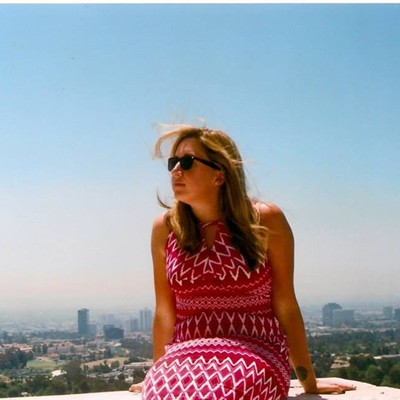But which strategy is the most successful? In recent weeks, Occupy Boulder has attracted much of the local attention usually allotted to its larger counterpart, despite the fact that its tactics so far have verged closer to political negotiations than outright altercations. But its attempts at an all-hours occupation have been spotty: On January 7, as Occupy Boulder prepared for eviction as a result of the city's new park curfew, their protest lasted only an hour past curfew before protesters cleared the area around 12:15 a.m.
At the end of the protest -- a sometimes shirtless dance party involving both Occupy groups -- only one protester was later found on-site: Peter John Jentsch, the owner of Occupy Denver's dog leader Shelby. Released from the Boulder County Jail on a third-degree trespassing charge last week, he is currently prohibited from entering the park because of a restraining order.Jentsch was the only arrest made in a night that de-escalated without altercation. Contrast this to Occupy Denver, which has, three and a half months in, been evicted from state and city property five times and faced more than ninety arrests.
"The difference between here and Denver is the police force," says Audrey Campbell, an Occupy Boulder protester. "There are less high-tension situations because we're not being brutalized and the police still seem to be more open to us. We don't want that to happen here, but I also know that people are really mad."
Although the two occupations are working closely together, they have faced vastly different responses from city officials: During the day, Occupy Boulder still has tents, and its members attend city political meetings on a regular basis. (Granted, the new park curfew ruling equalized that aspect of the two groups' camping opportunities.) At the city council meeting to discuss the possibility of a park curfew, Boulder officials mentioned a wish not to earn the same media attention as Denver, where they cited photos of Civic Center Park on fire.
The concern there is less aimed at consistent, overnight, 24-7 occupation than the same group in Denver, where the ability to physically live in the park it occupies has provided much of the fodder for interactions between the city and the occupation. Earlier this month, the two even experienced a minor tiff about the placement of the group's Port-A-Potty.
When Westword spoke to Jentsch about Occupy Boulder's possible eviction, he suggested the philosophical differences stem from a different view on relationships with their cities. "We haven't had all the police history that they have, and it feels healthier and more possible to accomplish our goals here right now.
"We still have different opinions and some people are more aggressive than others, but I feel like we haven't yet burst that police bubble yet," Jentsch told Westword.
The night after his arrest, his answer was a little different: "There's a little bit less of a healthy relationship right now, because the town seems to be taking a harder stance now after this park closure rule."
Take, for instance, the process. The thwarted police visit ended with Boulder police confiscating protesters' property (left abandoned when they left), but it will be cataloged and available for pick-up -- unlike Occupy Denver's property, which is largely disposed of in Public Works trucks. In the meantime, Occupy Boulder's focus is firmly away from the camping issue, and protesters are staging daytime events in Sister Cities Plaza.
"We don't have the resources to continue getting arrested, and we don't have the man power to stand up against the police," Campbell says. "We're in the regrouping stages, but we're definitely going to do something. There will be action soon."
Continue to the next page for more information and a copy of Occupy Boulder's recently proposed vision statement. Upcoming events, like the pre-eviction dance party, are symbolic: Last weekend, Occupy Boulder's website, updated with more service-oriented detail than Occupy Denver's, touted a funeral planned for "Bill O'Rights, our dearly departed friend and guide.""We're trying not to kill our relationship with police yet," Jentsch told Westword. At an Occupy Denver open forum earlier this month, the larger movement's own relationship came up as a topic of conversation -- with the goal being to positively develop it. And last week, at a fundraiser at the Hi-Dive that showed Occupy Denver films, a large number focused on violence between police and protesters. "We're getting creative, and we're working together."
Occupy Boulder's vision statement draft:
We who occupy Boulder as citizens of Earth realize our interdependence with all life as well as the threat our behavior poses to the planet's biosphere. We recognize no separation between the health of the planet and the health of the human community. To survive and thrive, we must defend, repair and support life....Within the human community, we envision:
A society where everyone has their essential needs met and can develop their full potential, regardless of gender, race, ethnicity, age, sexual orientation, class, religion, creed or any difference.
Transparent systems of governance that represent the hearts, minds, and wills of the people.
Working together to build a true democracy where political institutions work to benefit all, not just a privileged few.
A democracy where everyone feels rewarded and is encouraged to take personal responsibility, participate in decision-making, and listen respectfully to all points of view.
An economy where we value human and environmental needs over monetary gain and which benefits all, not just the privileged few.
An end to war and violence on the personal and communal levels, and a commitment to the peaceful resolution of disputes.
A culture of respect fully integrated with its local ecosystem.
A culture and politics that serves and protects the well-being of present and future generations.
More from our Occupy archive: "Occupy Denver: Canine leader Shelby's owner arrested for trespassing at Occupy Boulder."











